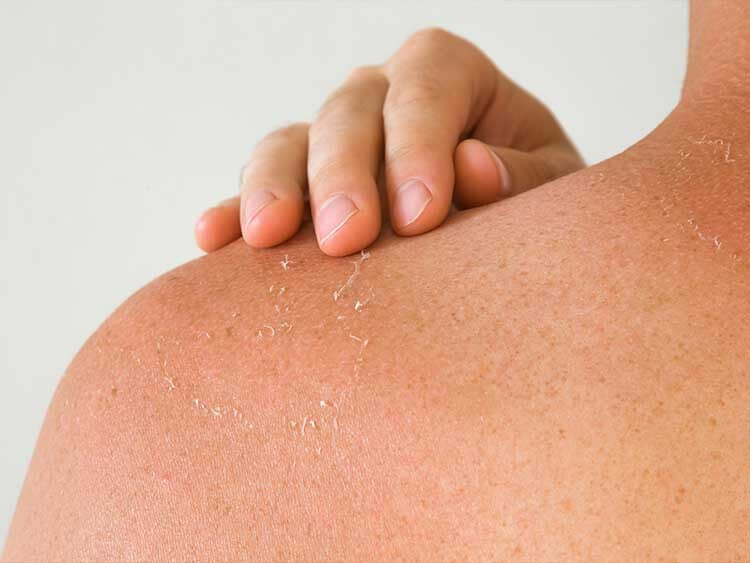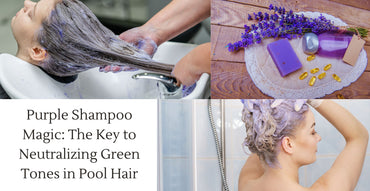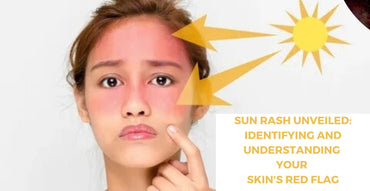Optimising your skincare and nutrition necessitates a multifaceted approach that takes your genetics and lifestyle habits into account. Understanding how your genetic makeup and lifestyle choices affect how your skin looks and feels can help you establish a personalised strategy for skincare and nutrition that can promote optimal skin health. Genetic testing can reveal your skin type, risk factors for specific skin problems, and how your skin may react to various products or treatments. Understanding your genetic makeup allows you to make educated judgments about which skincare products and treatments will work best for you.
Your lifestyle habits, such as diet and exercise habits, also have an impact on your skin's health. Nutritional genomics, also known as nutrigenomics, is the study of how your genetics interact with your nutrition and how this relationship affects your health. You may create a nutrition plan that promotes good skin from the inside out by knowing how your genetics and diet interact. Stress and sleep patterns are two more lifestyle elements that can have an impact on your skin's health. Chronic stress can induce inflammation, which can lead to a variety of skin disorders, and a lack of sleep can interfere with the skin's normal repair processes. By addressing these lifestyle factors, you can promote optimal skin health and enhance the effectiveness of your skincare and nutrition plans.
The Science Behind Personalized Nutrition and Skincare: How Genetics and Lifestyle Patterns Affect Your Health

The science behind personalised nutrition and skincare is based on an understanding of how genetics and lifestyle habits influence your health. Your genes influence how your body reacts to various foods and skincare products, while your lifestyle habits, such as your diet and exercise habits, can also have an impact on your health and fitness. Genetic testing can provide information about your personal nutritional needs, such as how your body metabolises different nutrients and how you may react to certain diets or supplements. Some people, for example, may be genetically predisposed to lactose intolerance, whereas others may be at a higher risk of vitamin D insufficiency.
Understanding your genetic makeup allows you to personalise your dietary plan to your specific demands and promote maximum health. Similarly, genetic testing can reveal information about your skin's health, such as your skin type, risk factors for specific skin problems, and how your skin may react to various skincare products or treatments. This information can assist you in creating a personalised skincare routine that addresses your unique needs while also promoting healthy, glowing skin.
In addition to genetics, your lifestyle habits have a huge impact on your health and fitness. A diet rich in antioxidants, good fats, and other nutrients, for example, can promote healthy, youthful-looking skin, according to a study. Exercise improves skin health by boosting blood flow and supplying oxygen and nutrients to skin cells. Stress and sleep patterns are two more lifestyle elements that might have an impact on your health and fitness. Chronic stress can cause inflammation, which can contribute to a variety of health problems, and a lack of sleep can interfere with the body's natural healing processes. Understanding how genetics and lifestyle habits affect your health is required for a personalised diet and skincare regimen. You can promote optimal health and wellness and attain your best self by recognizing your particular needs and establishing a personalised approach to nutrition and skincare.
Understanding the Role of Genetics in Nutritional and Skincare Requirements
Our dietary and skincare needs are heavily influenced by our genetics. Our genes have an impact on how our bodies absorb and process nutrients, which can have an impact on our overall health and well-being. Some people, for example, may be genetically predisposed to lactose intolerance, which might impair their capacity to digest dairy products. Similarly, some people may be predisposed to certain skin disorders or sensitivities due to genetics, which might influence the types of skincare products that work best for them. Understanding our genetic makeup allows us to adjust our diets and skincare routines to our own demands. This can help us improve our health and lower our chances of developing certain disorders. A diet low in saturated fats and high in heart-healthy nutrients like omega-3 fatty acids, for example, may assist someone with a genetic predisposition to heart disease. Similarly, someone with a hereditary proclivity for acne may benefit from a skincare regimen containing chemicals such as salicylic acid or benzoyl peroxide.
How Lifestyle Patterns Affect Your Nutritional and Skincare Needs
Aside from heredity, our nutritional and skincare requirements can be greatly influenced by our lifestyle choices. The foods we eat, the amount of physical activity we engage in, and our exposure to environmental variables like pollution and UV radiation can all have an impact on our general health and well-being. Someone who follows a sedentary lifestyle, for example, may need fewer calories than someone who is physically active, but someone who lives in a polluted location may need more antioxidant-rich meals to battle the effects of oxidative stress on their skin. Similarly, someone who spends a lot of time indoors may need more sunscreen and other protective skincare products than someone who spends most of their time outside.
We can make better-informed choices regarding the foods we consume and the skincare products we use if we understand our lifestyle habits and their impact on our nutritional and skincare demands. This can aid in the optimization of our health and the protection of our skin from damage, lowering our risk of acquiring certain conditions and creating a more youthful, radiant appearance.
The Importance of a Personalized Approach in Achieving Health Optimization
A personalised approach to health optimization is essential since it takes into consideration an individual's unique genetic makeup, lifestyle behaviours, and health history. Rather than a one-size-fits-all strategy, this allows for a personalised approach to diet and skincare that suits each individual's distinct needs. Someone having a hereditary tendency to specific health disorders, for example, may require a different diet and skincare regimen than someone who does not have that same genetic predisposition. Similarly, someone who exercises often may need more protein and other nutrients to maintain their physical activity, but someone who does not exercise may need fewer calories. Because it is tailored to their own requirements and circumstances, a personalised approach can help individuals reach their health goals more effectively and efficiently. As individuals are able to optimise their nutrition and skincare regimen to complement their particular genetic composition and lifestyle patterns, this can lead to improved outcomes and a higher quality of life.
Nutritional Requirements for Optimal Skin and Hair Health: Identifying Nutrient Deficiencies and Environmental Factors

A variety of nutrients, including vitamins, minerals, and antioxidants, as well as protection from environmental factors that might harm the skin and hair, are required for optimal skin and hair health. Some of the most important nutrients for good skin and hair are:
-
Vitamin A: This nutrient is necessary for skin health and aids in the maintenance of healthy hair follicles.
-
Vitamin C: This antioxidant protects the skin from free radical damage, which can result in premature ageing.
-
Vitamin E: Another antioxidant that supports healthy hair growth and assists in preventing skin damage.
-
Biotin: This B vitamin, which promotes cell growth and repair, is crucial for healthy skin and hair.
-
Omega-3 fatty acids: These beneficial fats are crucial for the health of your skin because they keep it hydrated and fight inflammation.
Environmental variables, in addition to these nutrients, can influence skin and hair health. UV rays, air pollution, and harsh chemicals can all contribute to skin damage and premature ageing. It is critical to protect the skin and hair against these causes in order to maintain good health. A combination of DNA testing and lifestyle evaluations can be used to identify vitamin deficiencies and environmental factors that can affect skin and hair health. This data can be used to create a customised diet and skincare plan that meets specific requirements and addresses specific problems. Maintaining optimal skin and hair health necessitates a nutritious diet as well as protection against environmental factors that can cause damage and premature ageing. Individuals can design a personalised strategy to meet their specific needs and attain optimal health and wellness by identifying dietary deficiencies and environmental factors that may be affecting skin and hair health.
How Nutrient Deficiencies and Environmental Factors Affect Your Skin and Hair Health
Nutrient shortages and environmental factors can have a big impact on your skin and hair's health. Vitamin deficiencies, for example, in vitamins C, D, and E, can cause dry skin, wrinkles, and other indications of ageing. Mineral deficiencies, such as zinc, copper, and iron, can also contribute to acne and eczema. Pollution, UV radiation, and cigarette smoke are among the environmental variables that can harm the skin and hair. These elements can induce accelerated ageing, pigmentation, and hair loss. Aside from deficiencies and environmental variables, lifestyle habits like nutrition and exercise can have an impact on the health of your skin and hair. A high-sugar and processed-food diet can lead to inflammation and skin problems, but regular exercise can improve circulation and maintain healthy skin and hair.
The Role of Nutritional Supplements in Achieving Optimal Skin and Hair Health
Nutritional supplements can help you achieve your ideal skin and hair health. Supplements can help fill any nutrient shortages that may not be met through diet alone. Some important vitamins for skin health are:
-
Collagen production is increased and skin elasticity is promoted by vitamin C.
-
The antioxidant vitamin E works to prevent sun damage.
-
Reduces inflammation and promotes skin hydration with omega-3 fatty acids
-
Zinc helps reduce acne and manage oil production.
-
Biotin promotes hair growth and strengthens hair, nails, and skin.
While supplements can be beneficial, they should not be used in place of a healthy diet. It is usually preferable to receive as many nutrients as possible from entire foods. Before beginning any supplement program, it is also critical to contact a healthcare expert.
Managing Dietary Restrictions: Tips for Meeting Your Nutritional Needs
Managing dietary restrictions can be difficult, but there are a few strategies you can use to ensure that you get the nutrition you need:
-
Consult a healthcare professional or registered dietitian: They can assist you in developing a meal plan that meets your nutritional needs while accommodating your dietary restrictions.
-
Read food labels carefully: Look for things that are labelled gluten-free, dairy-free, or whatever your dietary restriction is.
-
Experiment with new recipes and ingredients: Try out new dishes that are adapted to your dietary requirements and include fresh ingredients to help make up for any nutritional shortfalls.
-
Plan ahead: Plan your meals and snacks in advance to make sure you always have nourishing options on hand.
-
Consider supplementation: If your diet does not provide you with all of the nutrients you require, consider taking a supplement under the supervision of a healthcare professional.
Remember that you can meet your nutritional needs while adhering to dietary restrictions. It may require extra effort and planning, but the payoff is improved health and well-being.
Skincare Requirements Based on Genetics and Lifestyle: Anti-Aging and Wellness Strategies

Genetics and lifestyle play an important role in determining the most effective products and treatments for an individual. Here are some anti-aging and wellness strategies that take genetics and lifestyle into account:
-
Genetic anti-aging strategies: DNA testing can assist in identifying genetic variations that influence the ageing process. For example, if a person has a genetic predisposition to collagen breakdown, anti-aging products that increase collagen production may be beneficial. Similarly, if someone is predisposed to hyperpigmentation, they may need to take extra precautions to protect their skin from sun damage.
-
Lifestyle-based anti-aging strategies: Lifestyle factors such as diet, exercise, and stress management can all have an impact on the ageing process. Eating a nutrient-dense diet high in antioxidants and good fats, exercising regularly, and practising stress-reduction strategies such as meditation can all help slow the ageing process.
-
Genetic wellness strategies: DNA testing can reveal genetic variations that affect overall wellness. For example, if a person is predisposed to inflammation genetically, they may benefit from an anti-inflammatory diet and lifestyle, as well as supplements such as omega-3 fatty acids and curcumin.
-
Lifestyle-based wellness strategies: Lifestyle factors such as sleep, stress management, and social support can all have an impact on overall wellness. Getting enough quality sleep, stress management techniques like meditation or therapy, and cultivating strong social connections can all help improve overall health and well-being.
In general, a personalized approach that considers genetics, as well as lifestyle, is likely to be the most successful for both anti-aging and overall wellness. DNA testing can be a useful tool in detecting genetic differences that affect skin and hair health, but lifestyle factors such as diet, exercise, and stress management can also play an important part in reaching optimal health.
Using DNA Testing to Identify Your Genetic Makeup and Inherited Traits Affecting Your Skin Health
DNA testing can reveal important information about a person's genetic composition and inherited features that may affect their skin's health. It is possible to uncover genetic abnormalities that may raise an individual's risk for skin disorders such as acne, eczema, psoriasis, and skin cancer using DNA testing. Furthermore, DNA testing can reveal an individual's skin type, as well as their chance of developing wrinkles, hyperpigmentation, and other symptoms of ageing. Individuals can make more educated decisions about their skincare routine and may be able to take preventative measures to minimise their chance of acquiring certain skin disorders by discovering these genetic variants and inherited features. Individuals who are prone to skin cancer, for example, may be advised to wear a higher SPF sunscreen and avoid prolonged sun exposure. Understanding an individual's genetic composition can also aid in the selection of appropriate skincare products and treatments. Individuals with dry skin, for example, may benefit from products containing ceramides or hyaluronic acid, while those with oily skin may benefit from products containing salicylic acid or benzoyl peroxide. DNA testing can assist in influencing decisions about skincare products and preventative actions by providing insights into an individual's unique genetic composition.
Developing a Personalised Skincare Regime Based on Your Genetics and Lifestyle Patterns
Creating a customised skincare routine based on your genetics and dietary habits requires a thorough approach that considers all the variables affecting the health of your skin. Consider the following steps:
-
DNA Testing: DNA testing can be used to determine your genetic makeup and inherited traits that affect your skin health. This will give you important information about your skin type, risk factors for skin conditions, and nutrient deficiencies.
-
Consultation with a Dermatologist: Make an appointment with a dermatologist to go over your DNA test results, medical history, and lifestyle habits. They can assist you in developing a customised skincare regimen based on your specific requirements.
-
Lifestyle Changes: Examine your lifestyle for any factors that may be affecting your skin's health, such as stress, lack of sleep, or exposure to environmental pollutants. Make changes to your lifestyle to lessen the impact of these factors.
-
Nutritional Supplements: To address any nutrient deficiencies identified in your DNA test, consider taking nutritional supplements. This can include vitamins C, E, and omega-3 fatty acids, which have been shown to support healthy skin.
-
Skincare Products: Select skincare products that are tailored to your skin type and address any specific concerns identified in your DNA test. This could include antioxidants, retinoids, or peptides, which have been shown to improve skin health.
You can optimise your skin's health and achieve a youthful, radiant appearance by taking a personalised approach to skincare based on your genetics and lifestyle patterns.
Prevention and Anti-Aging Strategies for Optimal Skin and Overall Wellness
As previously said, prevention is essential for maintaining excellent skin and general wellness. Here are some ways for preventing and reducing the indications of ageing:
-
Sun protection: Keeping your skin shielded from the sun's damaging UV rays can help you avoid early ageing, skin cancer, and other skin problems. Put on protective clothing, reapply sunscreen frequently, and limit your time spent in the sun.
-
Balanced Diet: A nutrient-dense diet can help maintain your skin healthy and decrease the effects of ageing. Consume a variety of fruits and vegetables, healthy grains, and lean proteins.
-
Water consumption: Drinking lots of water keeps your skin hydrated and guards against dryness and wrinkles.
-
Regular Exercise: Regular exercise can increase blood flow, lower stress levels, and improve the condition of your skin.
-
Stress Management: Chronic stress can contribute to premature ageing and other health issues. Stress-relieving activities such as meditation, yoga, and massage can help promote skin health and overall wellness.
-
Skincare Routine: Creating a personalised skincare routine based on your genetics and lifestyle patterns can aid in the maintenance of optimal skin health and the prevention of premature ageing.
-
Preventive Measures: DNA testing and other preventive measures can help lower the risk of developing skin conditions and diseases by identifying and addressing genetic predispositions and environmental factors.
You can keep your skin healthy, and youthful-looking, and stop premature ageing by embracing a holistic approach to skincare and overall wellness.
Conclusion: The Future of Health Lies in Precision Medicine and Personalized Prevention

Indeed, the future of health and wellness is shifting towards precision medicine and personalised prevention, in which genetic testing and analysis will play an important role. Understanding our genetics and lifestyle patterns allows us to make educated decisions about our skincare and nutritional needs, resulting in the best health outcomes. Personalised anti-aging and preventative measures can assist us in maintaining our physical and emotional well-being as we age, boosting our quality of life and longevity. We can use DNA testing to discover the mysteries of our genetic makeup, determine our specific needs and predispositions, and take a proactive approach to our health and wellness.















